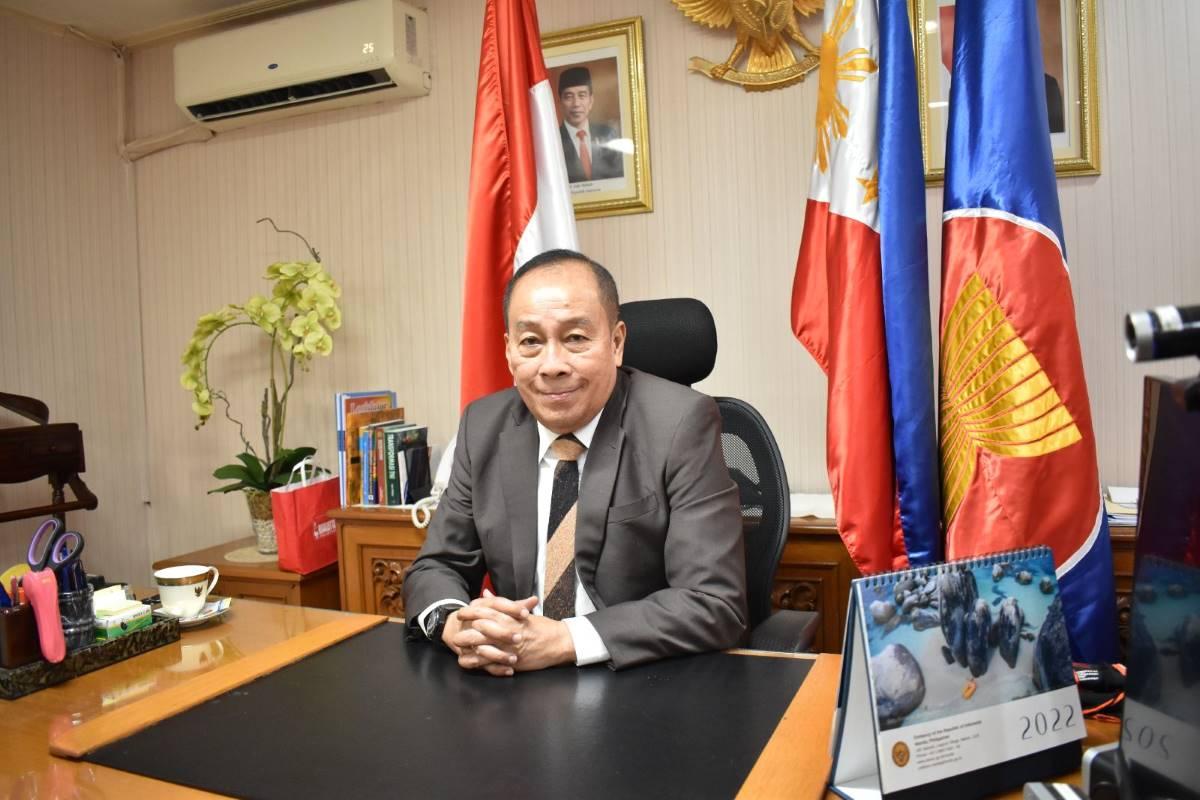Indonesia envoy: Code of Conduct ‘most important’ to address South China Sea conflicts

A code of conduct in the South China Sea that is being negotiated by China and the Association of Southeast Asian nations should be legally binding and is “the most important” undertaking by Beijing and the regional group to prevent and manage conflicts in the disputed waters, Indonesia’s ambassador to Manila said.
As chairman of the ASEAN this year, Indonesia would try to hasten talks on the code, which has faced delays for years including at the height of the COVID-19 pandemic, but it would stay realistic.
“We may not achieve it as we would like it to be as fast as possible but the push is always there,” Ambassador Agus Widjojo told GMA News Online in an interview.
The proposed code, also referred to by its acronym COC, aims to prevent overlapping claims in the potentially oil-rich region from degenerating into violent confrontations, or worse, an economically devastating major conflict.
Finalizing the code has acquired urgency due to series of confrontations between China and its smaller Southeast Asian neighbors with competing claims to the waters, like the Philippines, Vietnam and Malaysia. The other claimants include Brunei and Taiwan.
The Philippines recently lodged a strongly-worded diplomatic protest against China after the Philippine Coast Guard reported that a Chinese coast guard ship on Feb. 6 pointed a “military-grade” laser light at one of its vessels to block it from approaching Ayungin Shoal during a resupply mission for Filipino troops stationed there. The incident, which occurred several days after President Ferdinand Marcos' state visit to China, reportedly resulted in the temporary blindness of the Filipino crewmembers.
China defended its coast guard’s actions, saying it merely used a harmless hand-held laser meant to measure the distance from the Philippine vessel, which it accused of intruding into its waters and was told to leave the area.
“The COC is an instrument of how we, in our effort, which is to reach consensus and agreements primarily between ASEAN member states and China and all parties concerned. That is why a COC is most important and it is a result of also discussions among parties concerned,” he said.
More challenges, however, lie ahead as ASEAN and Chinese negotiators braced to tackle the most contentious provisions of the COC, including whether to declare it a legally binding pact or not and the scope of the contested region to be covered by it, according to diplomats who previously spoke with GMA News Online.
Indonesia has not been known to be a claimant in the disputed waters but disputes have also arisen between Indonesian authorities and Chinese fishermen and Chinese coast guard ship in the Natuna Sea facing the South China Sea waters.
Asked if Indonesia would push for a legally binding code of conduct, Widjojo said that would make any such agreement more effective.
“I think that would be the end state that we hope to expect and why is that? Meaning we will be talking in the same language but we know that reality is not such and that we have to keep on engaging all parties and conduct negotiations so that we can agree to that conduct and arrive at what is expected that it can be legally binding,” he said.
Instead of a legally-binding agreement, ASEAN and China settled in 2002 for a nonbinding declaration that called on all claimants to exercise restraint and stop new occupations in the South China Sea.
The 2002 declaration, which did not carry any provision on punitive sanctions, failed to stop acts of aggression in the contested waters.
“If we do not put focus on the COC then is there any other alternative without risking an open crisis? COC is a form of soft power approach to open the floor to come to a consensus,” Widjojo said.
China asserts ownership of the South China Sea nearly in its entirety based on historical accounts – a claim dismissed by an international tribunal as having no legal basis.
In July 2016, an international arbitral court in The Hague, Netherlands invalidated China’s historical claim over the South China Sea. The decision angered Beijing, which refused to participate in the arbitration initiated by the Philippine government in 2013.
While ignoring the ruling, China has continued to beef up its presence in the contested territories, drawing concerns from countries, including the US, Japan, and Australia.
ASEAN diplomats say it will take about “three readings” to conclude negotiations on the code. The regional bloc and China are currently on the second reading.
“The COC is expected to become a set to rules to govern the conduct of parties in the South China Sea. The main practical elements of the COC that Indonesia always emphasizes are preventing incidents, managing incidents if they occur and continue with confidence building measures,” Widjojo said.
In addition to the COC negotiations, Widjojo said Indonesia will continue to push for the increased practical maritime cooperation between ASEAN and China for the South China Sea area to “increase mutual trust in order to support peace, security and stability in the region.” — RSJ, GMA Integrated News




